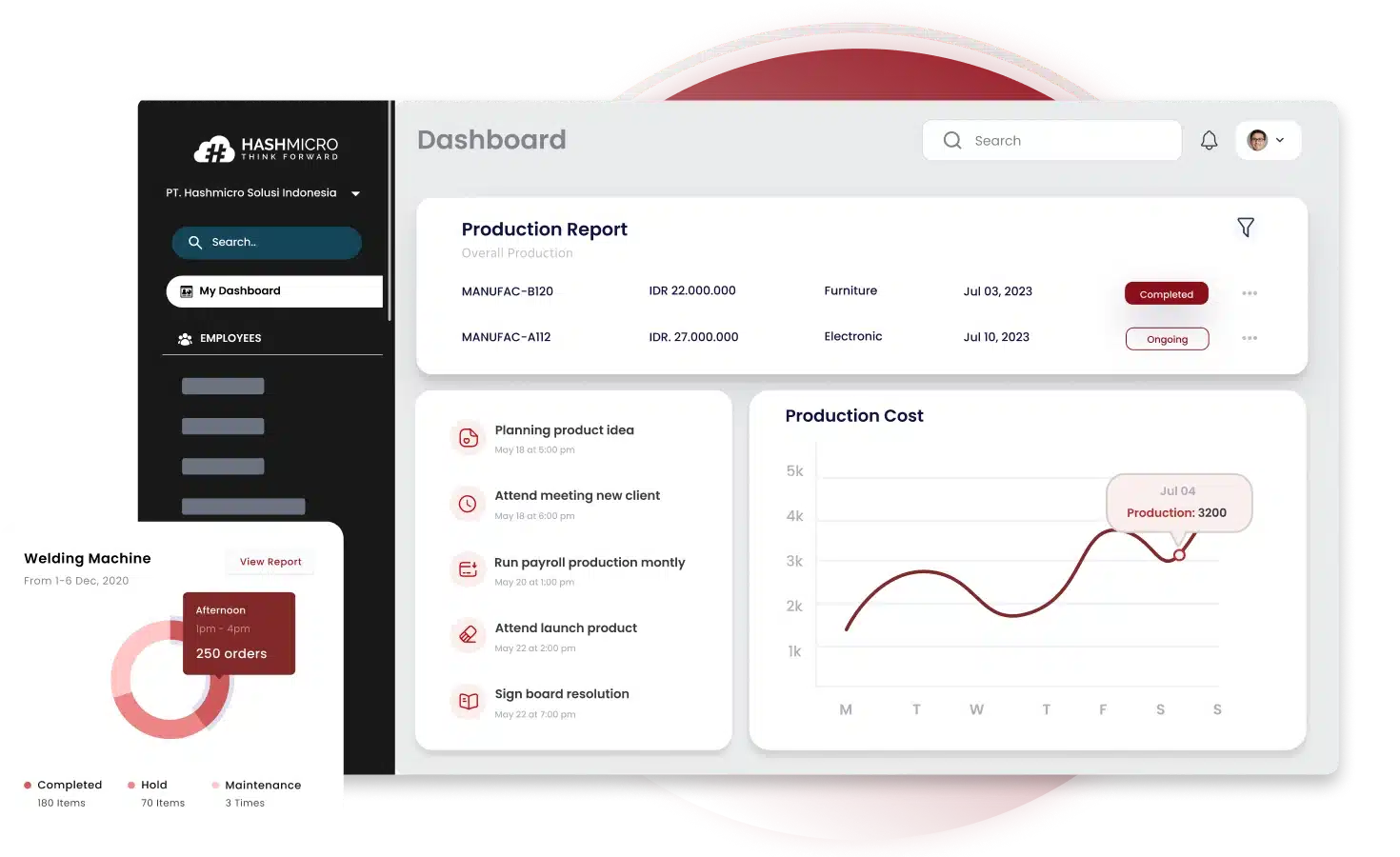Improving business management to maximize profitability while reducing costs is a key goal for the engineering sector. An Engineering ERP System helps meet this need by simplifying complex tasks. Without it, functions like inventory, reports, and on-site management can quickly become overwhelming.
Implementing Enterprise Resource Planning (ERP) helps simplify this complexity. ERP is an enterprise-wide system designed to coordinate essential data, resources, and activities needed to complete business processes more efficiently.
An ERP system is made up of separate software modules and a shared database. With this setup, every department can store and retrieve real-time data. An Engineering ERP System lets companies select the modules they need, mix solutions from different vendors, and expand as operations grow.
A strong Engineering ERP System also standardizes processes across the organization. By automating workflows, it reduces errors, prevents misuse, and ensures greater consistency. This makes ERP an essential tool for engineering businesses looking to improve efficiency and performance.
Key Takeaways
|
Optimize Business Operations
As a firm grows more extensive and prosperous, its internal operations will inevitably become more complex. However, a company’s productivity can be increased with effective ERP software for engineering that delivers accurate business data in real-time. This can make a significant difference.
The intuitive user interface of an Engineering ERP System makes the automation of all of a company’s procedures significantly less complicated. The fulfillment of orders, prompt delivery, and production of a wide range of engineering goods are only some of the primary corporate activities that will benefit from this.
Cost Control

When conducting business, interacting with the engineering sector necessitates payment of various administrative and operational fees. Enterprise Resource Planning (ERP) software, on the other hand, gives users access to a centralized database that contains accurate and up-to-date information.
This Engineering ERP Software can also assist business owners to more easily avoid errors and delays in their operations, increase the quality of their business decisions, and more efficiently manage the various aspects of their businesses.
Work Flexibility
The enterprise resource planning software is not rigid because its features can be modified to accommodate a wide range of requirements. They can change in a way that allows them to correspond with the organization’s specific needs without requiring any more effort to perform due to the modification.
The current Engineering ERP System is exceptionally adaptable and can be used in a wide variety of contexts because of its high level of flexibility. This suggests that it can adapt to meet the ever-evolving requirements and demands of a new and developing business, which shows that it is capable of modifying.
Ensure Business Transparency

By performing routine checks, a company can improve its ability to monitor its inventory levels. This includes shipments that are on their way as well as goods that are currently on delivery. This remarkable accomplishment becomes possible when a business operates under the guidance of a centralized Engineering ERP System.
Because of this transparency, it is also considerably more straightforward for a company to keep track of the amount of working capital required. The more visible and transparent businesses are, the easier it is for the various divisions within an organization to collaborate and speed up their work.
Precise Planning
Every engineer is responsible for designing a feasible plan that will enable them to complete a project within the time limit and budget restrictions set. Investing in an Engineering Enterprise Resource Planning system is intelligent if you want to establish a complete 3D plan for a project and ensure that no aspects are missing.
Using an Engineering ERP System will also highlight the fundamental technological domains that you should concentrate on.
How to Choose the Right Engineering ERP

Selecting the right Engineering ERP System is not just about finding software; it’s about finding a solution that matches your company’s needs today and in the future. The following points will help guide you through the most important factors to consider before making a decision.
Identify your business needs
The first step is to assess your company’s critical processes, such as project management, inventory, and on-site operations. Choosing an ERP that aligns with these needs ensures a smoother implementation. It also helps secure real value for the business in the long run.
Consider flexibility and scalability
An effective ERP should allow you to add separate software modules as your company grows. Scalability also means the system integrates well with existing tools, reducing workflow disruptions. With the right scalability, your ERP investment can serve you for years.
Evaluate ease of use and accessibility
Ease of use is essential for team adoption. A user-friendly interface minimizes training time and encourages faster use across departments. Cloud-based ERP systems also provide engineers and managers with real-time data access anytime, anywhere.
Assess vendor support and reliability
Beyond features, vendor support plays a crucial role in ERP success. Look for providers with industry experience, reliable updates, and strong after-sales service. These factors ensure your Engineering ERP System continues to perform effectively over time.
Enhance Your Engineering Projects With HashMicro ERP

After understanding how to choose the right Engineering ERP System, the next step is to find a provider that can deliver real value to your business. For companies in Singapore, HashMicro offers a powerful ERP software built specifically for the engineering industry.
This innovative solution is designed to streamline operations and optimize project management tasks. It provides both functionality and flexibility, helping engineering companies overcome unique challenges and manage projects with greater efficiency.
Features of HashMicro ERP Engineering Software
-
Project monitoring dashboard: Quickly view project statuses, track milestones, and monitor overall project health with an easy-to-read dashboard.
-
Cost and budgeting management: Accurately track project expenses and allocate resources efficiently to ensure projects stay within budget.
-
Task and deadline management: Assign tasks, set deadlines, and monitor progress to keep projects on track and promote accountability among team members.
-
Project reporting in Gantt chart & S-curve: Use visualization tools to map project timelines, identify potential delays, and reallocate resources as needed.
-
Customizable project report templates: Create tailored reports for internal reviews or client presentations, ensuring clarity and relevance for all stakeholders.
Conclusion
Nowadays, every company wants a reliable and effective ERP System to run and manage their business efficiently. With this kind of system, you can organize all administrative tasks to make your employees more productive.
ERP Systems offer numerous advantages to engineers, including improving the progression of jobs, reducing the amount of time spent on engineering, improving communication between departments, and enhancing the procedures used in engineering and production.
HashMicro is the best solution by providing an Engineering ERP System, as this system will facilitate you to manage all your business. We ensure that such a system maintains the security of your vital commercial data against all sorts of threats.
Discuss your business needs with us as a trusted business software consultant. Get the Engineering ERP System pricing scheme from HashMicro now. Click here to get a free demo!
FAQ about Engineering ERP System
-
What does an ERP engineer do?
An ERP engineer configures, customizes, and maintains ERP systems to match business processes. They ensure smooth integration between modules and help teams use the software effectively. Their role often bridges technical knowledge and business requirements.
-
What are the four types of ERP
The four main types of ERP are on-premise ERP, cloud ERP, hybrid ERP, and open-source ERP. Each type offers different levels of flexibility, scalability, and cost, depending on the size and requirements of the business.
-
What are the benefits of using HashMicro ERP?
HashMicro ERP helps businesses streamline operations, automate workflows, and improve decision-making with real-time data. For the engineering sector, it offers specialized modules for project monitoring, budgeting, and reporting that support efficiency and growth.
-
What is ERP in mechanical engineering?
In mechanical engineering, ERP supports tasks such as managing bills of materials, production planning, and resource allocation. It helps engineers track projects, control costs, and ensure timely delivery while maintaining quality standards.


































